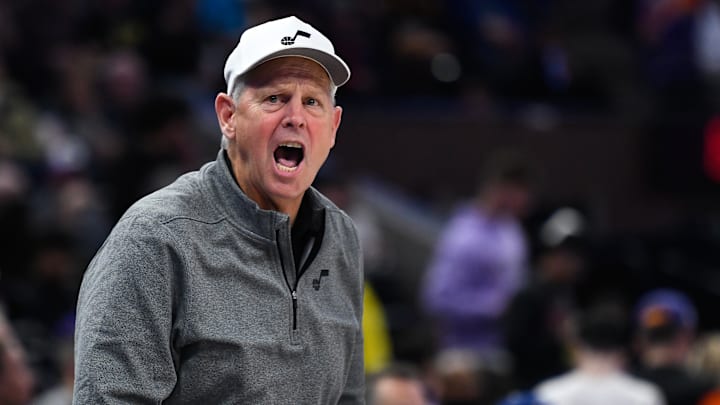It has now been confirmed that Walker Kessler will miss the rest of the 2025-26 season after going through season-ending shoulder surgery. If that wasn't a crushing enough blow for the Utah Jazz, their decision not to extend Kessler before the season started has actually proven to be the correct one for reasons they never intended.
For context, the Jazz chose not to extend Kessler when they had the opportunity to this offseason, but don't get it twisted. They made this choice primarily to keep their cap flexibility this summer, not because they didn't believe in Kessler. Not extending him gives them enough cap room that they can extend him while also signing a marquee free agent (like Philadelphia did with Tyrese Maxey and Paul George in 2024).
This strategy did not exactly sit right with Kessler, but it comes with the territory of restricted free agency. It doesn't mean the Jazz would repeat history with the Gordon Hayward fiasco, but it gives them the chance to make themselves and Kessler happy in the long term, even if his contract extension would have to be delayed.
Following the latest on Kessler, the Jazz were proven right to do this in a way that they probably did not prefer.
Kessler's injury could pave the way for Utah to pay him less
Because Kessler will enter restricted free agency coming off a season derailed extremely early because of an injury, the Jazz have leverage in extension talks. In professional sports, it's all about "What have you done for me lately?" which Utah would be smart to use with Kessler, as awful as that sounds. If there's one executive who utilizes that strategy to the max, it's Danny Ainge.
That doesn't mean they will insultingly lowball him, but they could be stingy in offering him a lower price than he would prefer. What makes this situation even worse for Kessler's sake is that he appeared to have reached a new level as a player early in the season, which would have likely increased his price had this shoulder injury not occurred, and he maintained the pace.
While the Jazz may be thrilled to secure someone as valuable as Kessler to a long-term deal at below market value, this could fuel friction between the two sides. The Jazz made the move in the first place not because they didn't think Kessler wasn't worth paying what he may have wanted, but merely as a formality, a team-friendly decision.
One way or the other, Kessler will probably stay a Jazzman going forward. If Utah keeps him at a lower price than originally planned, that works out great, but it shouldn't have played out the way it's looking like.
